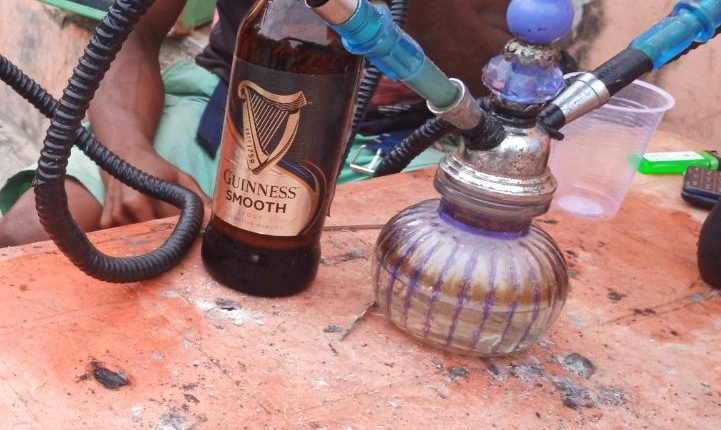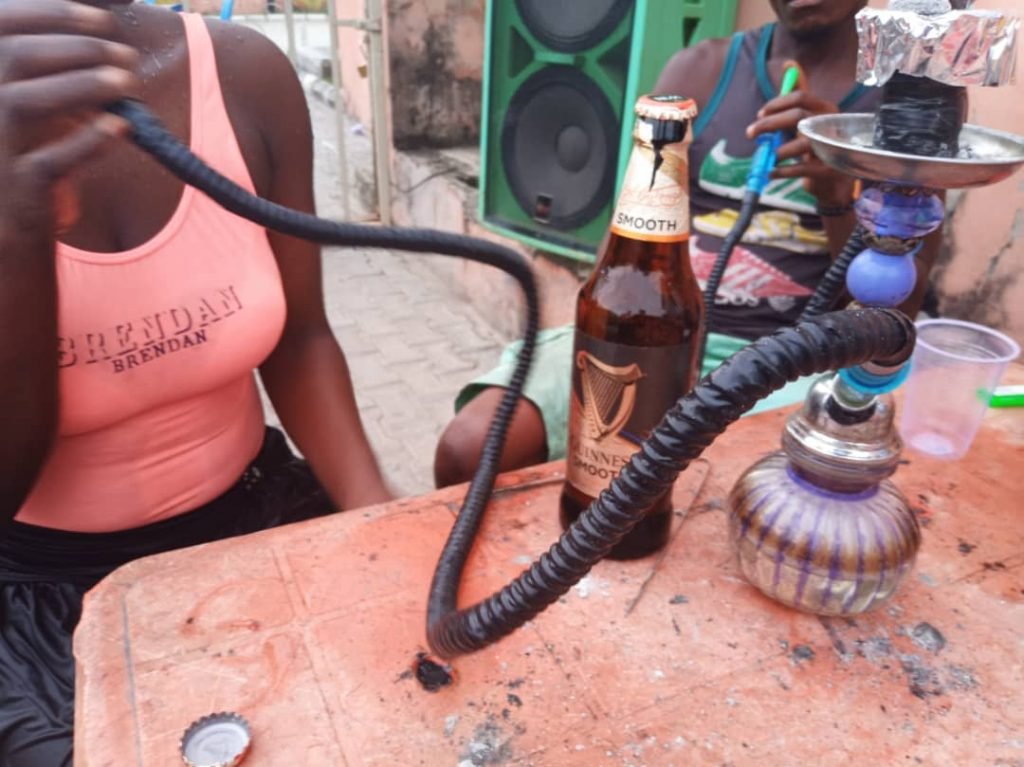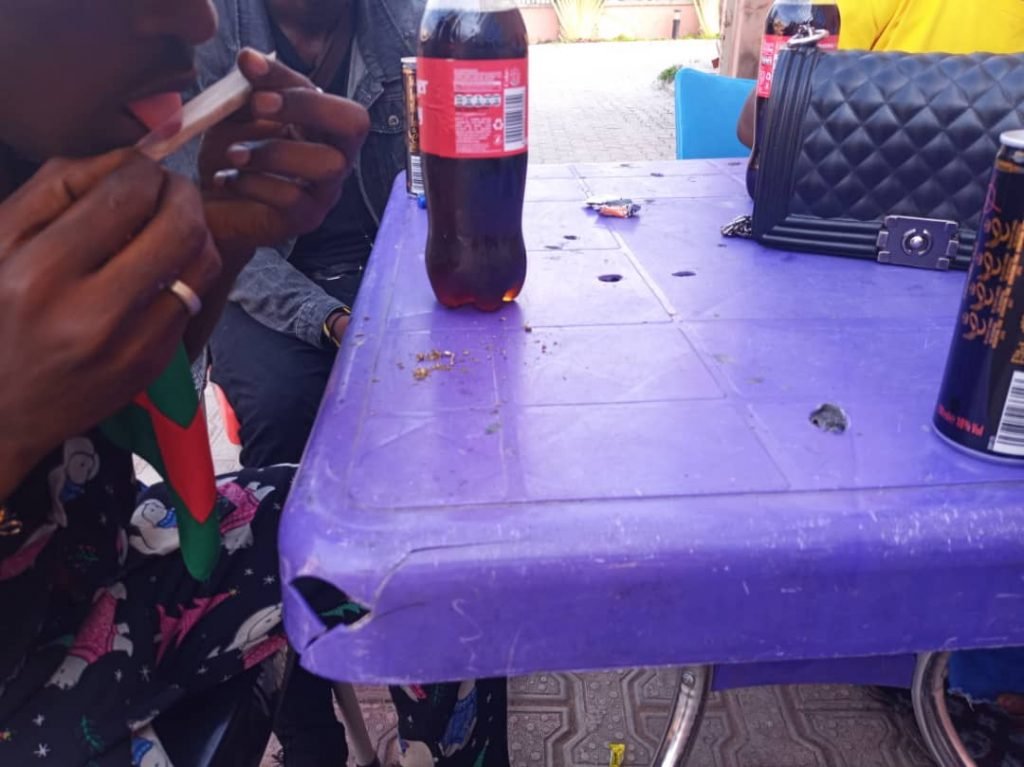Drug abuse – the silent killer devouring Taraba youth
Sylvanus Viashima, Jalingo
Twenty three year old Yusuf Sani dropped out of school at the tender age of fifteen and have wasted about eight years of his youthful life on drugs and petty crimes just so that he would be considered a “big boy”. He was arrested and spent nearly six months in jail before he was released. While in prison and starved of the drugs, he finally came to his senses and has realized just how much of his youthfulness he has traded pursuing the wind, and how close he has come to destroying his life completely.
“I was in JSS three when I started taking Tramol. It was my friend that introduced me to it. Then I was fifteen years. At first, it helped me to be able to work very well and it made me feel good. But later I discovered that I wanted to be taking it all the time. Then my friends told me that weed is better than Tramol. I also liked how weed use to make me high. When school resumed, I resumed with the other students but could no longer concentrate on school so I dropped out of school. I started spending more time at the motor park from morning and some time we would even sleep at the park. In fact the park became like my home.
“Some people who knew me would call me and advice me but I used to think that they don’t know what they were saying. One of our friends fell ill and died and people said it was because of drugs so I decided that I was going to stop drugs. But it did not work. It was as if my whole life depended on it”.
That was how Sani started out on a perilous journey into the world of drug abuse and by the time he turned Sixteen, he could drink, smoke, chew, inhale, ingest and inject any substance that could make him “high” and make him feel good.
Read Also: UKaid funded project trains Zamfara children’s parliament on…
But then again enough, the constant crave for drugs outweigh whatever it was he was making from hustling pasengers at the motor park and he had to resort to stealing to meet up the demand. Besides, Sani started partying and fighting at nearly every party he attended with his friends and soon, they were considered a cult group and dreaded.
“At first, we would go to a birthday party at a drinking joint and when it is time to pay the bills, we would start a fight, destroy things and run away without paying for the drinks. It was fun. And then it became an almost daily routine especially during the weekends. At a point, people became afraid of my friends and I. They started saying that we were in secret cult because we use to dress in the same color of clothes. I knew I was doing what was wrong but I could not stop myself. Infact I was no longer afraid of anyone, I was not afraid of getting hurt or even death. All I wanted was to be high”.
Sanu is a typical example of what drug abuse has done to so many young persons in Taraba state.
Between January and June 2021, the Taraba State command of the National Drug Law Enforcement Agency (NDLEA) arrested a total of over a hundred and thirty five persons for offences bordering on illicit trade, use or trafficking of various kinds of controlled or prohibited drugs in Taraba. The command also secures eight convictions within three months.
According to the state Commandant of NDLEA Mr Suleiman Jadi, “the crisis of drug abuse is gaining attention and is now more than a mere problem as it has become a security threat. Unfortunately, instead of diminishing, the problem is growing at an alarming rate thereby threatening the very fabric of the society”.
In Taraba state, it t is estimated that one in every five households is battling with drug abuse at a certain level.
The spokesperson of the Taraba State Police command DSP David Misal told Daily Sun that there is a direct correlation between drugs abuse and crime in the state.
Misal said that “you will notice a persistent rise in the prevalence of violent crimes involving youth some even in their early teens since around 2016. Infact, at a point around 2017 and 2018, we were having cases of persons stabbed almost on a daily basis. The command had to take drastic actions to check that very ugly trend. But then the crime rate generally is still very high despite the efforts.
“One thing you will notice is that, this coincides with the rise in the rate of drugs abuse in the state. Infact, records from the NDLEA will confirm that there is a corresponding rise in the rate of demand for illicit drugs in the state. Now you need to understand that the two services are coming up with better strategies to curtail these vices and yet, more and more young people seem even more inclined to go into them”.
Today, it is a common sight for young people to sit in public places in broad daylight smoking Indian hemp, taking Shisha, drinking other hard substances with complete impunity. It is unfortunately so fashionable that young people who don’t indulge in these are considered “not exposed and civilised”.
Also very worrisome is the number of young girls who have taken to drug abuse despite the attendant consequences of sexual abuse, health complications, social stigma, failure in school and other life ventures.
Appalled by the rise in violent crimes that are invariably precipitated by drugs intake, the state police command recently cautioned against unsanctioned social gatherings as they have become platforms for orchestration of a kinds of violent activities.
Read Also: Senate President extols achievements of Bagudu,says Kebbi very…
The general implication on the larger society is that, young people of school age keep dropping out of school under the influence of drugs and indulge in criminal activities such as rape, kidnapping, armed robbery, cultism, among several others thereby stirring a general feeling of insecurity in the state.
For a purely agrarian state, much of the farm hands spend most of their time taking drugs recovering from the effects of drug overdose, indulging in criminal activities, just idling around without a clear focus or stirring crisis so that they could plunder people’s wealth.
Non Governmental Organizations such as the Hope Afresh Foundation owned by the wife of the state governor Mrs Anna Darius Ishaku and others have continued to collaborate with security agencies to tackle the menace of drug abuse, counsel and rehabilitate victims as well as sensitise the general public on the dangers of drugs abuse to deter others from indulging in them.
However, peer influence, ignorance, poverty and other factors have continued to do more in recruiting more drug addicts into the system.



